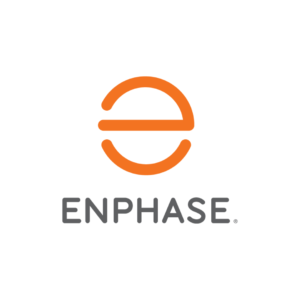LG and Enphase Solar Batteries
The Benefits of a Solar Battery
Here in New England, the top reasons to add a battery to your solar system are backup power for when the grid goes down and to shift the power you generate from the sun during the day to evening hours. After all, the number of grid outages over the last 10 years has increased over 14% and the cost of electricity has been going through the roof.
As far as solar batteries go, we recommend both the Enphase IQ Battery 5P and the LG Home 8 Energy Storage System over the perhaps better-known Tesla Powerwall. The best choice for you depends on your primary objective for buying a battery and what sort of situations you are trying to address.
Regardless, most solar batteries will qualify for the 30% Federal Income Tax Credit. And both of the batteries we offer, depending on where you live, can also qualify for a special battery incentive program from your utility. If it is available to you, signing up is your option but joining can earn you thousands of dollars over the first years of ownership, helping to offset the initial cost of your battery system.
The links at the left and above will provide some additional information on each of the options we offer. But to get you started here are a few of the things you’ll want to consider in choosing the battery that works best for you:
- Battery’s Primary Purpose – As noted above, there are two primary reasons for installing a battery. One is helping maximize the use of the power your system generates by helping you use it even after the sun has gone down and the other is as a backup system for when the grid isn’t working. Every system has its own strengths and weaknesses so which one of those “primary purposes” is most important to you may help guide your decision.
- Round Trip Efficiency (RTE) – RTE means how much energy do you lose when you store power in your battery and then pull it out again. For example, if your battery’s RTE is 90% then for every kW hour you push into your battery you only get 0.9 kW hours out. In general, a battery that is DC coupled is more efficient than an AC one, because all batteries are DC and so you need an inverter to change the energy from AC to DC for it to be stored and then back again to be used in your home. Part of that power is thus lost in that two-way conversion.
- Battery Life and Warranty – Since most everyone has a cell phone, we generally all know that batteries do not last forever. That said, most solar batteries have a 10-year warranty, but if you look deeper you’ll also want to pay attention to the total number of “charging cycles” they are warrantied for and how much power they should still be able to store at the end of the warranty period.
- Battery Capacity – How much power a battery can store is also obviously critical. They are generally rated for a total kW hours of energy storage, but putting that number in context with how much your home typically uses, or would use during a grid outage, is an important variable. Further, there are building codes that can dramatically increase the complexity of your installation if the energy your battery(ies) can store goes over a certain level. All of that can help determine which battery would be best for you.
- Battery Chemistry – How a given battery stores energy is also important. Your fossil fuel car uses a lead-acid battery, your phone typically a lithium-ion battery, and still other systems use a variation on that called a Lithium Iron Phosphate battery. Lithium Iron Phosphate batteries are considered far safer than other lithium-ion batteries as they are far less susceptible to overheating, but it is not the do-all-and-end-all determinant of a system’s safety as there are plenty of other safeguards in any commercially available system.
- Price After a Reputable Installation – Last of course, is any battery’s price. As we’ve outlined, there are many variables to deciding what is best for you, so it typically does not come down to which option is cheapest. But one variable often not fully considered is the total cost after installation. First and foremost, you’ll want your purchase to be installed correctly and want to know the installer can provide service if it is ever needed (some batteries do require an annual inspection to maintain your warranty for example). So once again, the cheapest option may not give you the most value for your money.
And of course, there are plenty of other issues to consider as well so if you’re unsure which system would be best for you, sign up with us for a consultation. We can outline options and costs to help you make the best decision for your needs.



